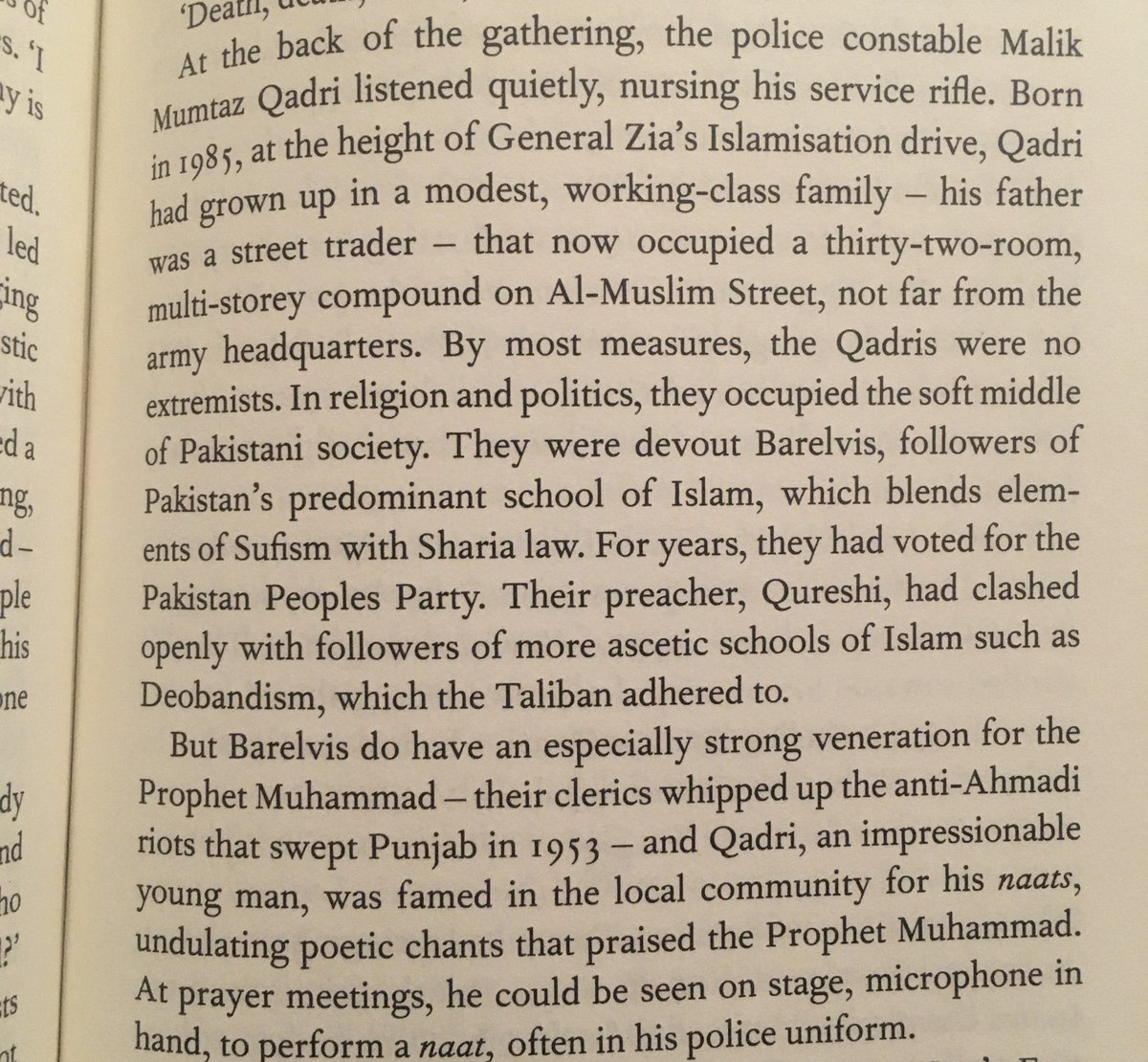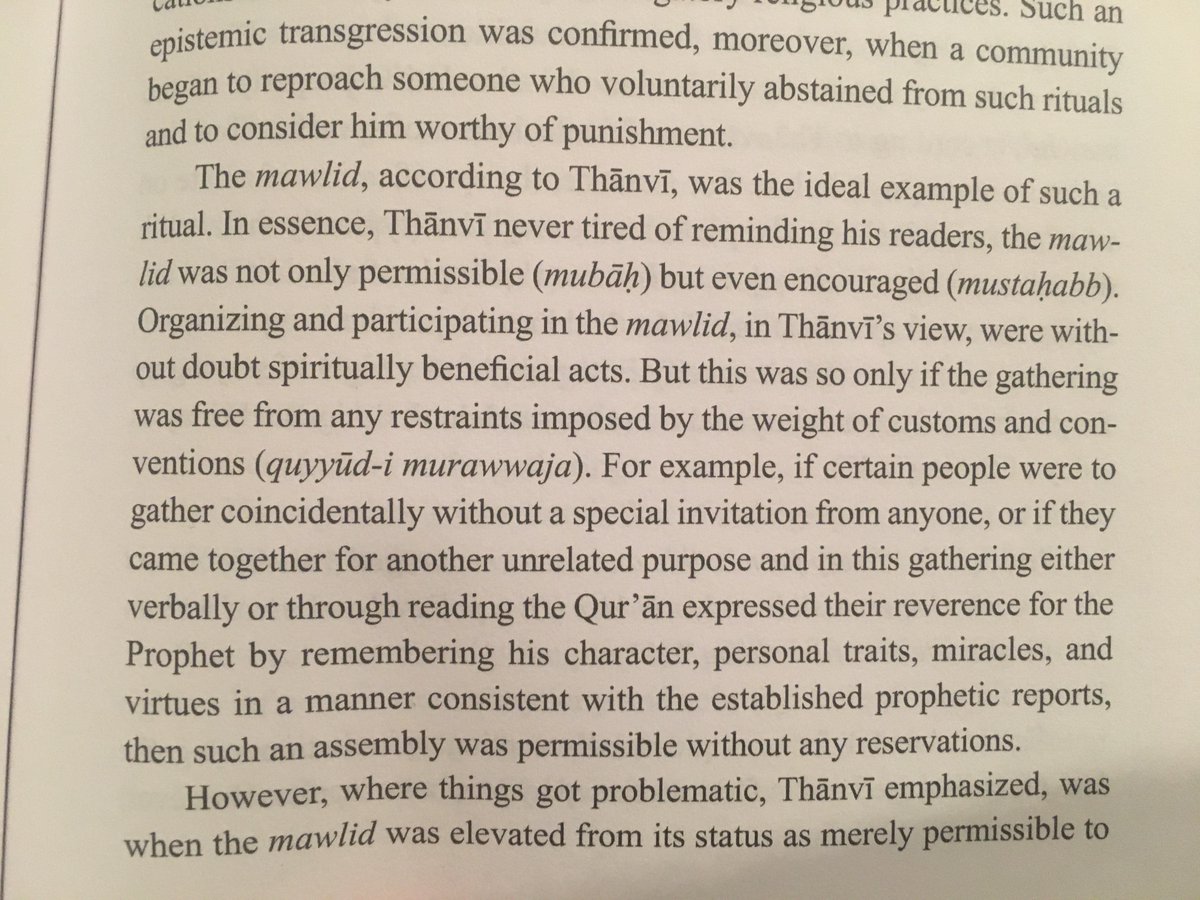1. Declan Walsh’s “The Nine Lives of Pakistan” distills the complexity of Pakistan in page turning prose. It isn’t intended as an academic work so at the risk of nit-picking I think this page describing Deobandis & Barelvis warrants additional context.
2. Deobandism is a Sunni sub-sect & describing it as an “ascetic school of Islam” that the Taliban adheres to w/o context is misleading. The Taliban are Deobandis. So is the mainstream revivalist & modernist political movement Jamaat-e-Islami whose Emir is a Pakistani senator.
3. The dawah (proselytizing) focused Jamaat Tablighi is Deobandi. So is JUI-F whose leader is chief of the Pakistan Democratic Movement. For a Western-oriented analogy, we wouldn’t say, “the legalistic Catholic wing of Christianity [in N. Ireland], which the IRA adheres to.”
4. Deobandis can be ascetic and reject practices they view as unsanctioned innovations, including many Barelvi ones. But they exist on a spectrum and the Taliban is on the extreme end of it.
5. Deobandis are also often mistaken for Wahhabis or other Salafi-oriented groups such as Ahle Hadith. Sometimes Deobandis are associated with terrorism they did not inspire. It is important to remember that Deobandi groups signed the Paigham-e-Pakistan fatwa against terrorism.
6. Ammar Khan Nasir who is a scholar from a reputed family of Deobandi clerics condemned 9/11 & declared that it was impermissible for Pakistani Muslims to join the Taliban jihad against coalition forces. This was an important & brave message within Pakistan.
7. Barelvism is also a sub-sect of Sunni Islam and describing it as a blend of “Sufism with Sharia law” implies that it is a syncretic mix of sanctioned Islamic legal principles & unsanctioned Sufism. Critics of Barelvism may think this but not Barelvis themselves.
8. Barelvi scholars view their Sufi rites as falling within the confines of what is acceptable by Islamic law--not an addition to it. To justify this, they might argue a particular ritual is Biddat-e-Hasana or a positive innovation not in contradiction with the Sunnah.
9. The above is itself a legalistic argument & Barelvis sometimes cite scholars such as Abdul Qadir Gillani (Ghaus-e-Azam) or Sheikh ul Akbar Ibn Al Arabi, or Jalal al-Din al-Sayuti.
10. Deobandism isn't traditionally opposed to all new practices within Islam so long as certain limits are observed. Deobandi scholar Ashraf Ali Thanvi accepted the celebration of the mawlid or Prophet’s birthday (popular among Barelvis) so long as it wasn’t declared obligatory.
11. In short, both Deobandis & Barelvis view themselves as operating with Islamic law. Both engage in serious legal reasoning. Both have sub-movements that welcome & resist reform and are political or apolitical.

 Read on Twitter
Read on Twitter



